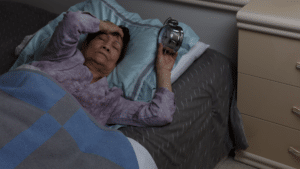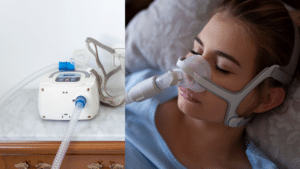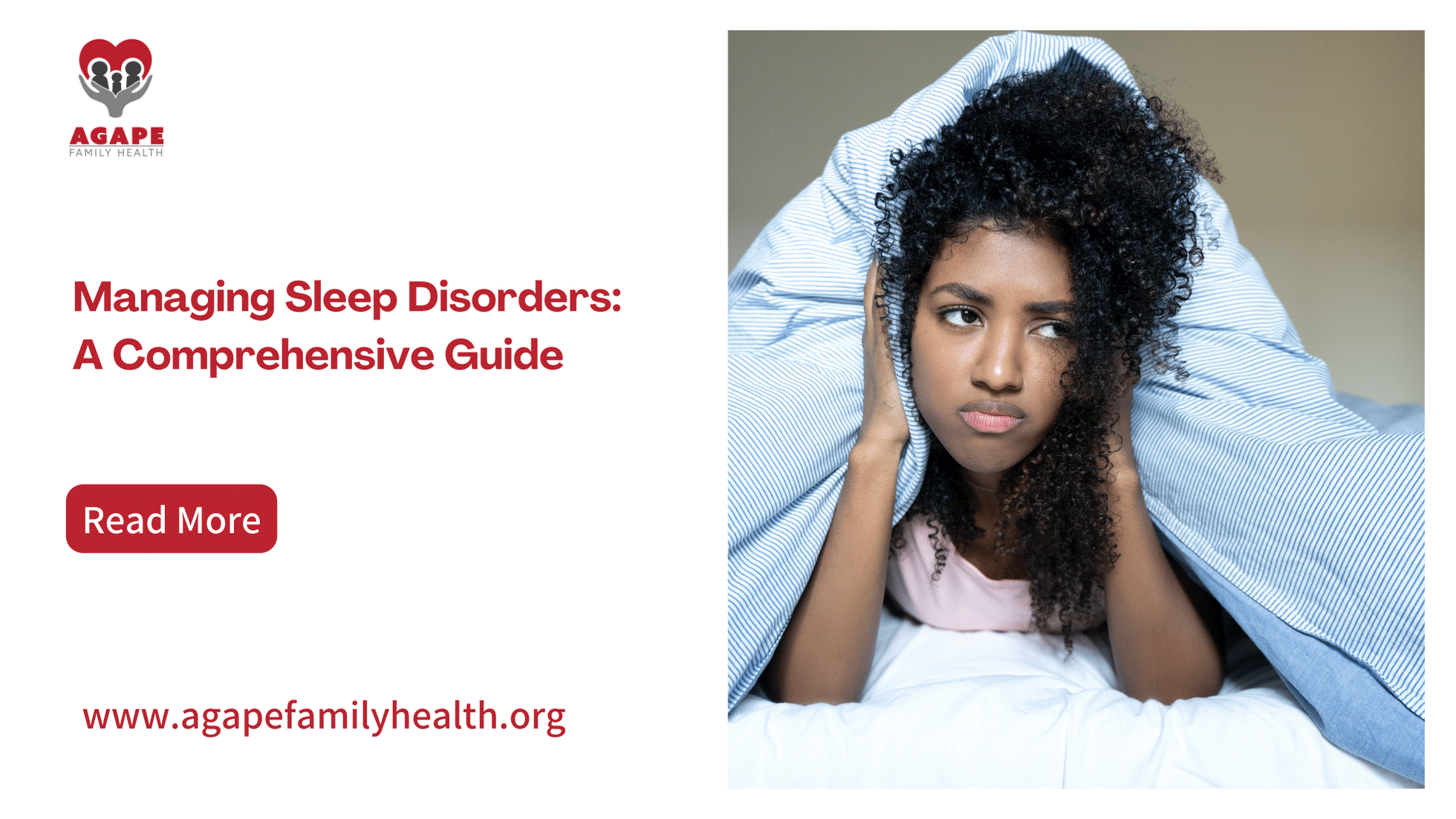The importance of sleep is often overlooked. With so many demands on our time and the constant flow of information, sleep disorders have become more prevalent. Understanding their nature and the management techniques available can pave the way to improved health and well-being.
What Are Sleep Disorders?

Sleep disorders are conditions that disturb one’s normal sleep pattern. There are various types, each with its own set of symptoms, causes, and treatments. Some common sleep disorders include:
- Insomnia: Difficulty falling asleep or staying asleep.
- Sleep Apnea: Interruptions in breathing during sleep.
- Restless Leg Syndrome (RLS): An urge to move the legs during rest.
- Narcolepsy: Sudden episodes of daytime sleepiness.
What Causes Sleep Disorders?
The causes of sleep disorders vary widely and can be physiological, psychological, or environmental. Some common causes include:
Stress
Stress is a common factor affecting sleep. The relationship between stress and sleep is a vicious cycle; stress can prevent you from getting a good night’s sleep, and lack of sleep can increase stress levels.
- Physiological Reaction: Under stress, the body releases stress hormones such as cortisol. Elevated levels of cortisol, especially in the evening, can increase alertness and make falling asleep more challenging.
- Ruminating Thoughts: Stress often leads to overthinking, especially at night. The mind might replay distressing events or dwell on future uncertainties, making it hard to relax and drift off to sleep.
Medical Conditions and Sleep
Certain medical conditions can have a profound impact on sleep quality and quantity:
- Asthma: This respiratory condition can worsen at night, a phenomenon known as nocturnal asthma. Symptoms such as coughing, wheezing, or shortness of breath can disrupt one’s sleep.
- Chronic Pain: Conditions like arthritis, fibromyalgia, or chronic back pain can make finding a comfortable sleeping position challenging. Pain flare-ups can lead to frequent awakenings throughout the night.
- Diabetes: People with diabetes often experience frequent urination, which can disrupt sleep. Additionally, unstable blood sugar levels can lead to symptoms like night sweats or feelings of discomfort, further impacting sleep.
Medications
Medications can influence sleep in various ways. The body’s reaction to drugs is multifaceted, and what aids sleep for one person might hinder it for another.
- Stimulants: Drugs like those used to treat ADHD, high blood pressure, or certain breathing disorders can increase alertness and lead to insomnia.
- Antidepressants: Some antidepressants can cause sleeplessness, while others might make users feel drowsy.
- Allergy Medications: Some over-the-counter allergy medications can cause drowsiness, while others labeled “non-drowsy” might disrupt sleep.
Lifestyle
One’s lifestyle can significantly impact sleep. Everyday habits, food, and drink choices can either promote restful sleep or lead to sleep disturbances.
- Irregular Sleep Habits: Not having a consistent sleep schedule, i.e., going to bed and waking up at different times, can throw off the body’s internal clock, leading to poor sleep quality.
- Caffeine: Found in coffee, tea, soda, and some medications, caffeine is a stimulant that can interfere with the onset of sleep and reduce the amount of deep sleep, especially if consumed later in the day.
- Alcohol: While alcohol might initially make one feel drowsy, it can interrupt the sleep cycle, leading to fragmented sleep. It can also exacerbate sleep disorders like sleep apnea.
In essence, various factors, ranging from our emotional states and medical conditions to the choices we make daily, can influence our sleep quality. Being aware of these factors and how they affect one’s sleep is crucial in making informed decisions to promote better sleep health.
Why Is Managing Sleep Disorders Important?
The importance of sleep to overall health is often underestimated. Sleep is not just a passive state of rest; it’s a critical period when the body and brain undergo repair, restoration, and rejuvenation. Consequently, when sleep disorders go untreated, the consequences are both immediate and long-term.
Physical Health
Sleep disorders can exacerbate or lead to severe health complications. Persistent sleep deprivation has been linked to an increased risk of heart disease, which remains a leading cause of death worldwide. Similarly, sleep directly impacts glucose metabolism, and sleep disorders can be a precursor or aggravating factor for diabetes. These conditions alone emphasize the importance of treating sleep disorders to prevent potentially life-threatening conditions.
Mental Health
The relationship between sleep and mental well-being is symbiotic. While anxiety or depression can disturb sleep, the reverse is equally true. Chronic sleep deprivation or disrupted sleep can lead to mood disorders, particularly depression.
Cognitive Impairment
A good night’s sleep is pivotal for cognitive processes. Memory consolidation occurs during deep sleep stages. When sleep is disrupted, so is this vital process. This could result in impaired memory, decreased concentration, and diminished problem-solving capabilities.
Performance & Productivity
Fatigue from poor sleep can be debilitating. It hinders job performance and can lead to errors or accidents. In professions that demand high attention, like driving or operating heavy machinery, the consequences can be fatal.
Life Satisfaction
Overall well-being encompasses mental clarity, emotional stability, and physical health, all of which are directly influenced by sleep quality. Continuous sleep disturbances can reduce one’s quality of life.
Managing Sleep Disorders: A Multifaceted Approach
Diagnosis: Recognizing and understanding the nature of a sleep disorder is the first step. A sleep specialist will often carry out an array of tests, including a sleep study (polysomnography) if required, to pinpoint the issue.
Medications: Some sleep disorders may necessitate pharmacological intervention. These could range from sedatives for insomnia to stimulants for narcolepsy.
Lifestyle Changes

- Sleep hygiene: This involves cultivating habits conducive to sleep. This might mean sticking to a fixed bedtime, ensuring the room is dark and quiet, or using white noise machines.
- Diet: What one consumes has direct implications for sleep. For instance, caffeine is a known stimulant and can interfere with sleep cycles.
- Exercise: While rigorous activity just before bedtime can be counterproductive, regular exercise during the day can promote deeper sleep.
Therapy
Cognitive Behavioral Therapy for Insomnia (CBT-I) is a structured program that helps insomniacs identify and replace thoughts and behaviors that cause or worsen sleep problems with habits that promote sound sleep.
Components:
- Cognitive Control: This focuses on recognizing and changing the false beliefs and attitudes about sleep. For instance, some people might worry excessively about not getting enough sleep, which increases anxiety and worsens insomnia.
- Sleep Restriction: This involves limiting the time spent in bed, creating mild sleep deprivation, which produces more consolidated sleep.
- Stimulus Control: This teaches individuals to associate the bed and bedroom with sleep and remove stimuli that might hinder sleep, like watching TV or using smartphones.
- Sleep Hygiene: Offers guidelines to improve sleep, like regulating caffeine intake and creating a dark, cool sleeping environment.
- Relaxation Techniques: This helps in reducing or eliminating anxiety and body tension, making it easier to sleep.
Alternative Treatments
While traditional treatments are effective for many, alternative treatments have also been explored and found beneficial by some individuals.
- Meditation: Meditation is a practice where an individual focuses their mind on a particular object, thought, or activity to train attention and awareness and achieve a mentally clear and emotionally calm and stable state. Regular meditation can significantly improve sleep by calming the mind and reducing sleep-disturbing anxieties.
- Acupuncture: An age-old practice rooted in Traditional Chinese Medicine, acupuncture involves inserting thin needles at strategic points on the body. Studies suggest that acupuncture might increase the production of melatonin, a hormone that regulates sleep, and can have positive effects on sleep quality and duration for some people with insomnia.
Sleep Devices
Sleep Devices are medical devices specifically designed to assist individuals with sleep-related issues. One of the most recognized and widely used sleep devices is the Continuous Positive Airway Pressure (CPAP) machine.

Continuous Positive Airway Pressure (CPAP) Machines
- Function: A CPAP machine helps people with sleep apnea breathe more easily and regularly every night. It increases air pressure in the throat, ensuring that the airway doesn’t collapse when one breathes in.
- Components: A CPAP setup usually includes a machine, a hose, and a mask or nose piece. There are various mask styles, including full masks covering nose and mouth, masks covering only the nose, and prongs fitting into the nose.
- Benefits: Regular use of a CPAP machine can prevent or reverse the serious consequences of obstructive sleep apnea, including cardiovascular complications and daytime fatigue. Many individuals using a CPAP machine report improved sleep quality, increased alertness during the daytime, and better mood.
Recognizing the breadth and variety of treatments available for sleep disturbances is essential. It not only offers hope for those struggling with sleep disorders but also underlines the importance of personalized treatment strategies catering to individual needs.



